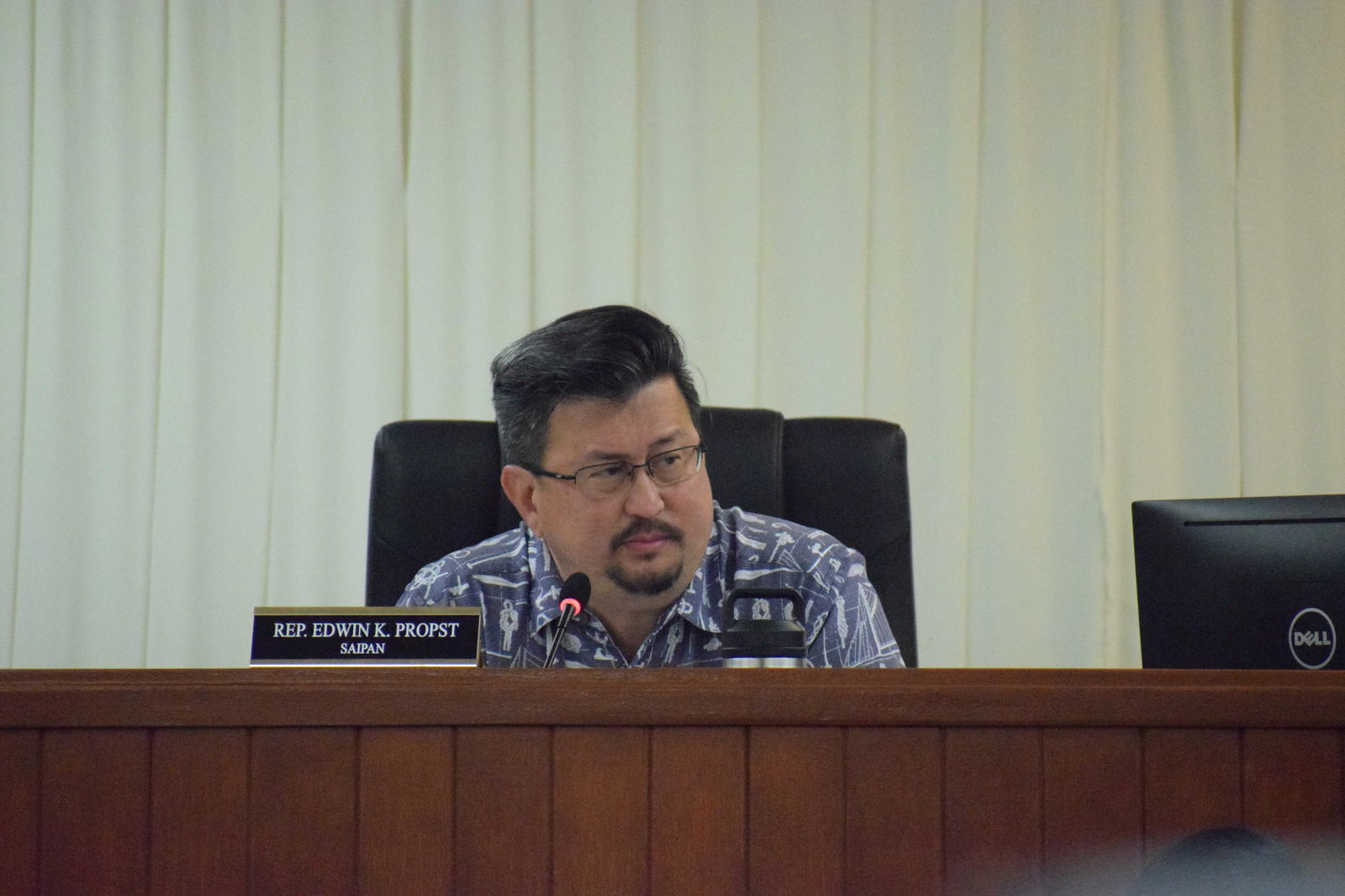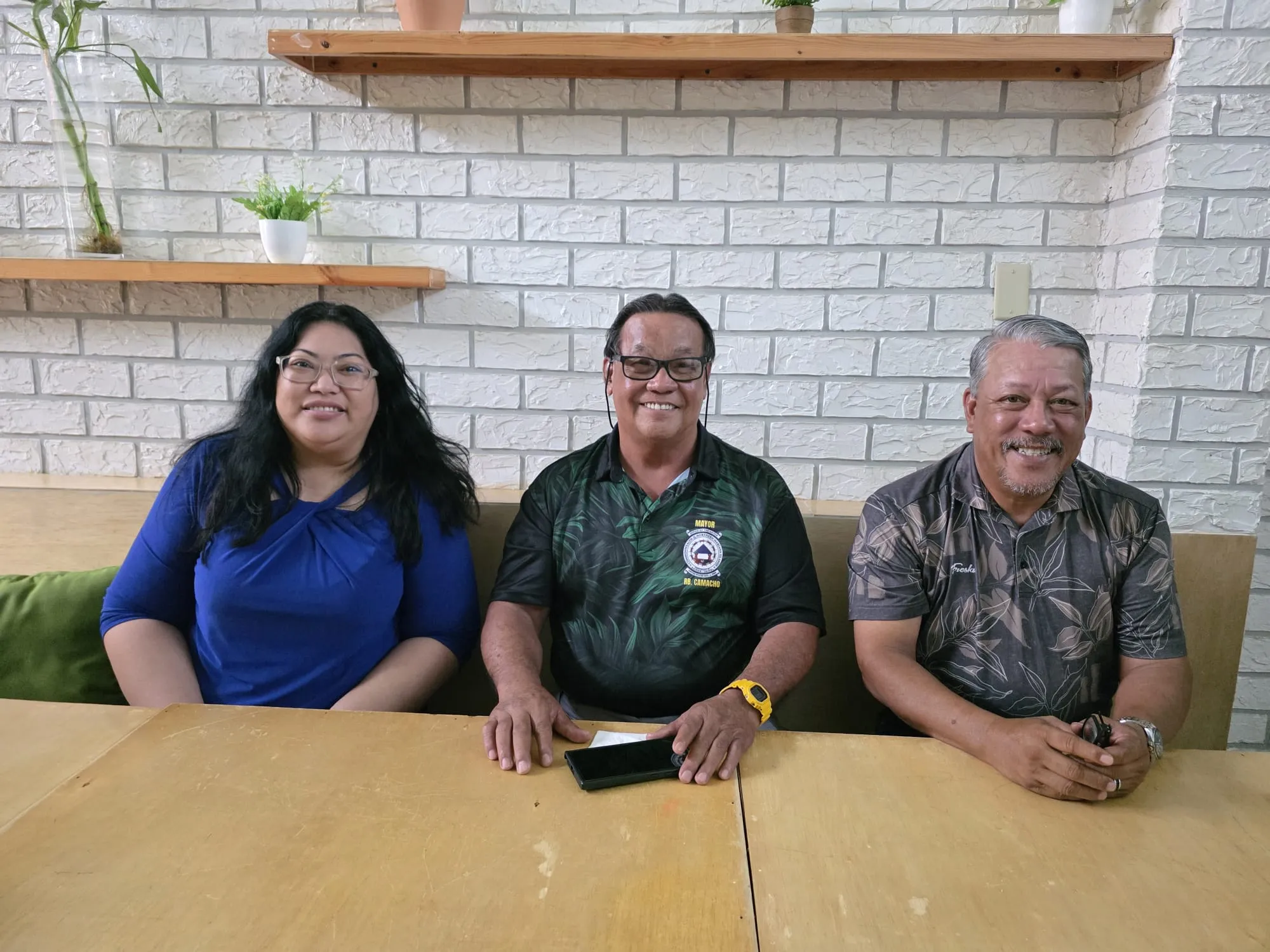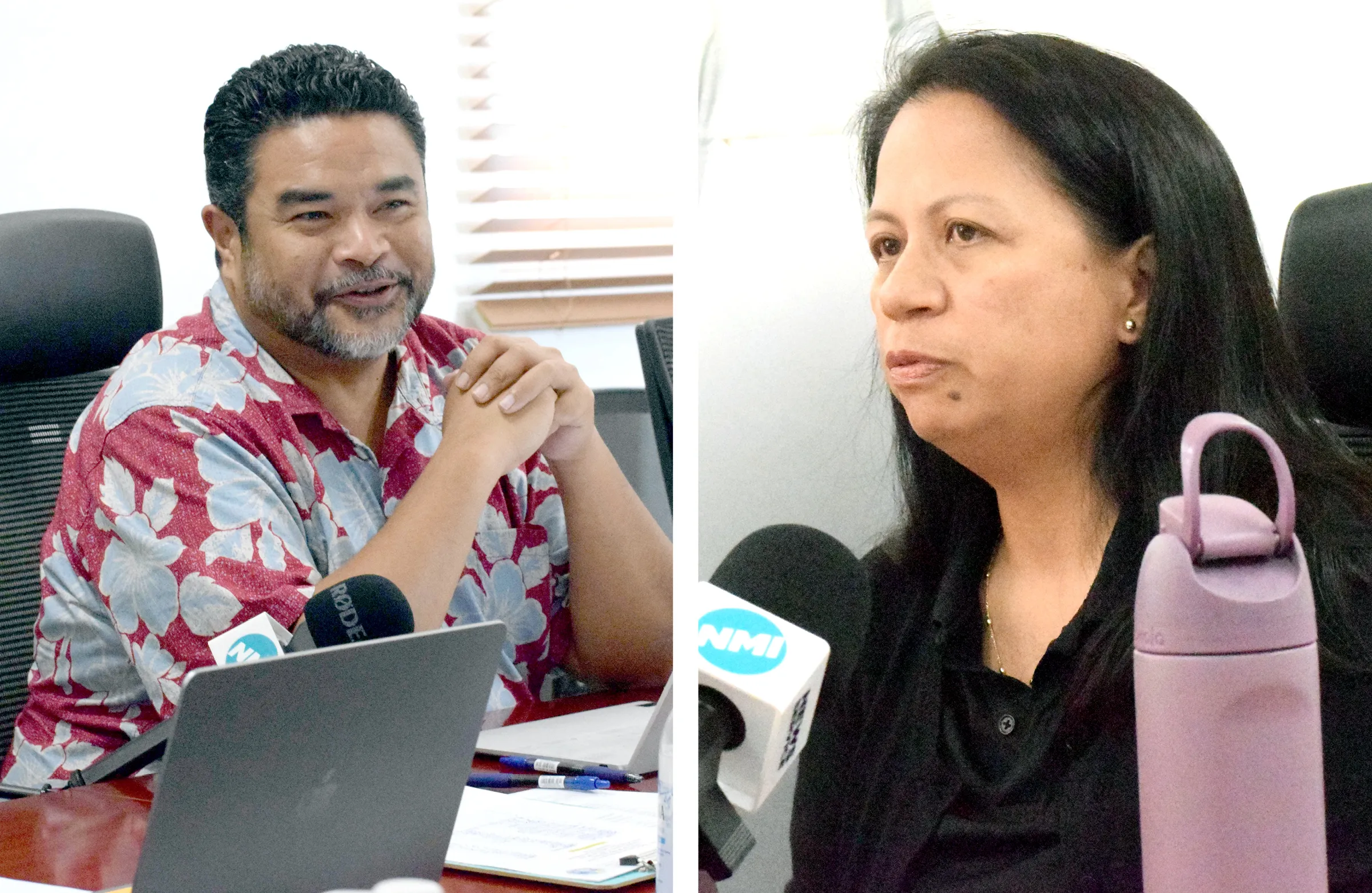
Edwin Propst
HOUSE Floor Leader and U.S. delegate candidate Edwin Propst said he supports the CNMI Economic Vitality & Security Travel Authorization Program or EVS-TAP, which will enhance the screening of visitors from China.
“But until EVS-TAP is implemented and we can see how it works, it doesn’t make sense for us to spend resources and political capital going after Annex VI and unlimited flights from mainland China. Tensions between our countries are still so high, and we don’t yet have in place the proper protocols to better secure our borders and protect our community,” Propst added.
The Saipan Chamber of Commerce and the Hotel Association of the NMI have urged the governor and the Commonwealth Ports Authority to apply for the reinstatement of the Annex VI provision of the U.S.-China Air Transport Agreement of July 9, 2007, which exempts the CNMI from the flight frequency limitations between the U.S. and China.
U.S. Congressman Gregorio Kilili Camacho Sablan and Senate President Edith Deleon Guerrero have made similar requests to the U.S. Department of Transportation.
According to a chamber member, “EVS-TAP … does not really do us much good without Annex VI.”
But Gov. Arnold I. Palacios has reiterated his decision to “pivot away” from Chinese investments and tourism, citing “geopolitical tensions” between China and the United States. At the same time, he said he “does not object” to Chinese tourists.
For former CPA Board Chair Kimberlyn King-Hinds, who is also running for U.S. delegate, “It’s mind-boggling how Chinese tourists are welcomed in the United States of America and good for the American economy, but it is a national security risk for the CNMI.”
Another U.S. delegate candidate, John Oliver Delos Reyes Bolis Gonzales, said: “Our volatile economy, largely driven by tourism, has been in crisis mode since the global pandemic. The solution to our current economic crisis? We need tourists to visit our islands to stimulate direly needed business activity, and Annex VI provides the CNMI the … opportunity, right now, to attract more tourists from China, to gradually fill the void left by the prolonged absence of Japanese tourists and dwindling South Korean tourists, our two largest source markets since ever since.”
For his part, Propst said although he “understands the urgency of rebuilding our tourism industry and improving air transportation services in the Marianas, I also see the need to be mindful of security concerns, and to ensure that our community is safe.”
He added, “All visitors to the CNMI should be properly screened. Right now, there is no visa requirement and no prior screening for visitors from mainland China. Unfortunately, we have had serious problems with this lack of vetting that have given the CNMI’s tourist parole program a black eye. The governor named a few in his recent statement, such as people overstaying or sneaking into Guam and criminals entering the CNMI.”
“That’s why I support EVS-TAP, which will enhance screening for visitors from mainland China,” Propst said.
“Keep in mind also that our airports are designated for joint use with the military. We need to engage in and hold discussions with our Department of Defense partners to ensure their concerns are addressed, too,” he added.
“Besides supporting EVS-TAP,” Propst said, “I would like to see us invest more resources in enhancing our destination and strengthening our tourism industry so that we are more resilient overall.”
Propst said there is also a need “to lower the astronomical [airport] fees that are killing our airlines, and I applaud the new CPA board for their efforts to do just that and pay off the bonds at the same time.”
Propst also commended the administration and the Marianas Visitors Authority’s efforts to pursue additional routes with existing and new airlines, and to open up new source markets like Taiwan and the Philippines.
“Taiwan is already part of the CNMI-Guam visa waiver program, and I fully support the inclusion of the Philippines as well,” he added.
Propst likewise joins the governors and legislators of the CNMI and Guam in pushing for better, more affordable interisland air service.
“We support reinstating the Marianas in the Essential Air Service program, and lowering cabotage restrictions so that foreign-based carriers can offer service between the CNMI and Guam. Competition is healthy, and we need more options in our region,” he said.
The Essential Air Service program ensures that small communities in the U.S. maintain commercial air service. Eligible communities receive subsidies to guarantee minimum air service, connecting them to the national network even when direct flights are unavailable.










